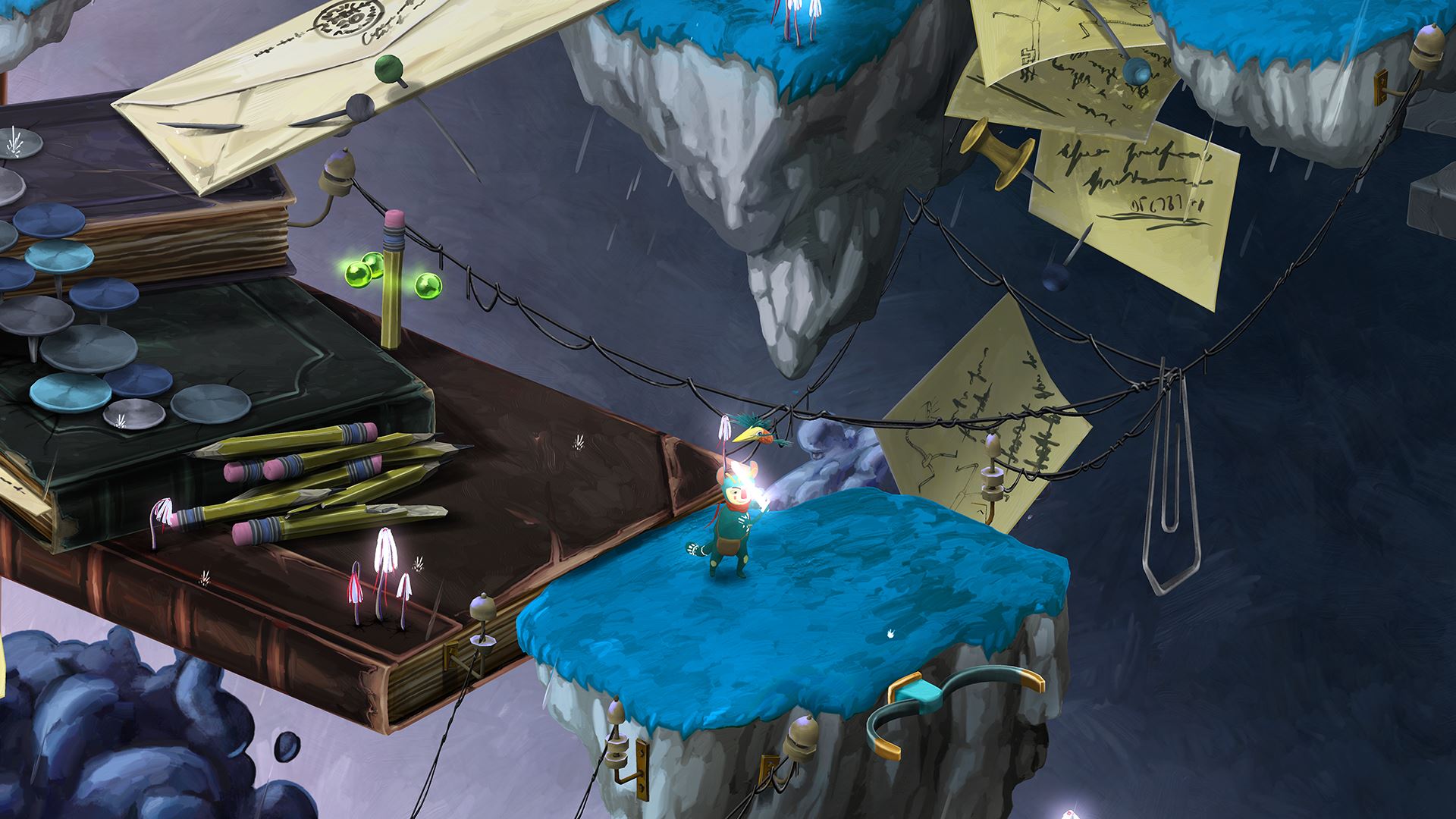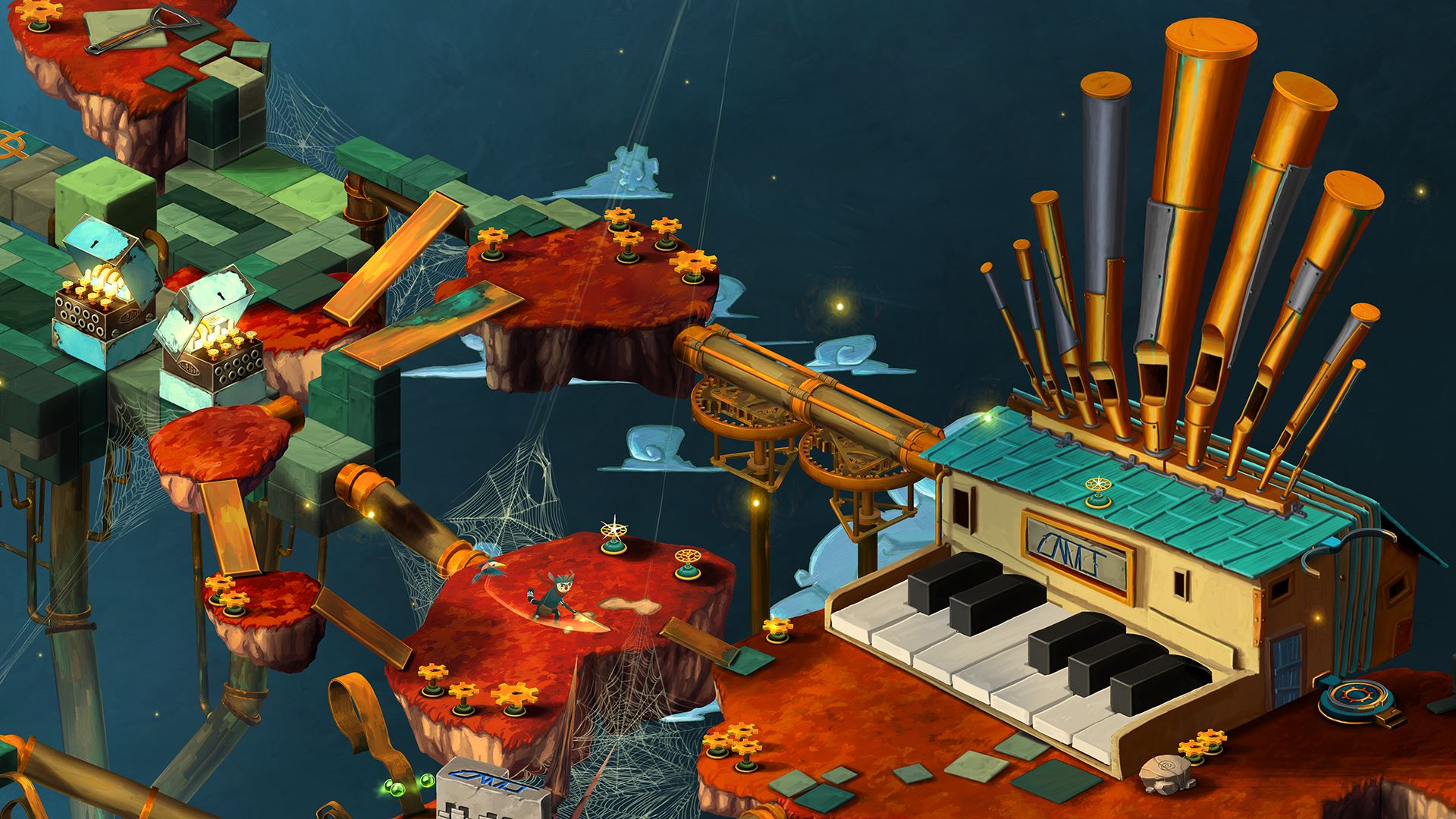An interview with the developers behind Figment
For those that didn’t get to play Figment on the PC, you’ve possibly missed one of the most beautiful games of 2017. It played great, sounded greater, and had so much charm and wonder it was impossible to put down. Thankfully, the game will be making its way to the Nintendo Switch this year, and Gary had a chance to interview the developers behind the game.
What challenges have you had to overcome, in porting the game to consoles?
It’s mostly been in two areas, making sure that the graphics work and that the save system still works.
Graphics is most often the biggest challenge when doing porting to other platforms, as the different platforms have a difference in graphical power and how they handle things such as shaders. So a lot of the work have been in ensuring the game runs smoothly at all times, when encountering effects and such. But that was all expected.
Most of the other challenges have been more technical in nature, such as making sure that the saving works, as that might be different between platforms, and updating the controls.
Will the console version include any new content, or is it the exact same experience as PC?
It will mostly be the same experience as the PC version, except for when we can utilize the use of the rumble on the controller in new ways.
Many console platforms allow for many other uses of the rumble in a controller, such as the HD Rumble for the Switch. This is feature that allows for some nice new uses of the rumbles and shakes in the controller. In the case of Figment, we have been hooking up a lot of the music, gameplay mechanics and events to the rumble. It adds something extra in a lot of situations and helps the player “feel” the music and rhythms of the game better.

We can’t talk about Figment without mentioning the music; where did the idea of a musical adventure come from?
It was actually not part of the original plan when we came up with the core idea for Figment and the experience we wanted to create. It was always the goal to have good music in the game, but the full idea didn’t come until our audio and game designer and resident musical mad hatter Niels, aka StÖj Snak, joined the team.
After some time on the team Niels started to experiment with implementing audio ideas, such as using the rhythm of the music in gameplay. The big experiment was him writing and performing a song for our first finished boss encounter, the gangly plague nightmare. We instantly fell in love with the idea and what it brought to the character and the experience as a whole. Song and music can communicate something very deep and detailed on their own, and combined with a little creative animation and a solid manuscript it really works great.
Also, we did like the idea of singing bad guys, like in many of the old classic cartoons. It just gives the villains so much more charisma and makes them memorable.
Sticking with the musical theme; the boss songs are excellent, but were there any unused ones?
Not any songs that are anywhere near finished, but some core ideas, genres and lines ended up not being used. Writing a song, making the music, recording, implementing and readjusting after testing takes a lot of time and energy. So songs never really made it into the soundtrack or game, unless they really fit into some part of the game.
The songs that ended up in the game were the ones that fit the boss themes and characteristics best, and also genres were we knew artist who could help us with voice acting and singing.
For those curious, we did experiment a bit with other genres such as rap and very heavy metal, but it never came past a few lines and some demo music.

The game was released during a very busy period this year, possibly not getting the recognition it deserved as a result; in hindsight, do you wish you’d released Figment during a quieter window?
2017 was a good year for quality indie games, but that also meant it was a very competitive market to release a game into – especially by the end of the year, when a lot of other good games with creative settings came out.
We are very satisfied with the feedback from players and media. People love the game, the mood and the theme. But it is true that we competed for attention with a lot of other games, and we do feel a bit bummed out about being drowned out. In hindsight we would probably have found another release window, hoping for a different result. The challenge is there are constant good games coming, so finding a good spot is hard now a days.
Luckily we do feel that Figment is kinda timeless in its style and we feel there are still plenty of opportunities to get the game out to people.
Following on from that; are you hoping to gain a much bigger audience from the console version, especially with the massive popularity of the Nintendo Switch in particular?
Definitely. Figment has been planned out as game for several platforms since the start, not just the PC, so we hope that players in those platforms will receive it well. The game is just as much for the console players.
The focus on the Nintendo Switch to start with is very much carried by players from that console reacting very positively to Figment, both online and at conventions. The player base really seems hungry for games to enjoy on their new system. And being honest, the team have kinda fallen a bit in love with the Switch. We were a little sceptical in the start, but we like how the system feels, the focus on gaming and the mixing of handheld and TV-console. Figment feels right at home on it, as it works great in both TV and handheld formats.





